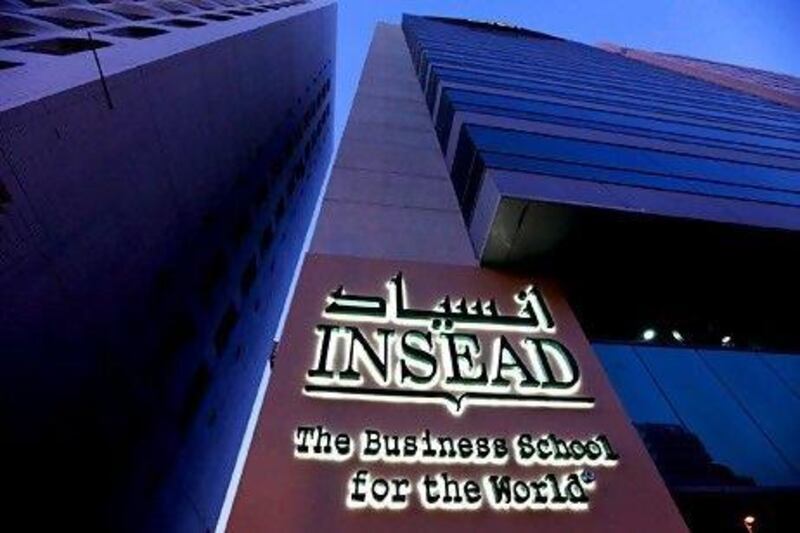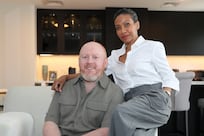Some business schools still bear the names of the cities in which they were founded. But they have since developed a more global outlook.
The London, Manchester, Ashridge, Cass, Hult and Insead business schools all have branch campuses in the UAE. Others, including Wharton and Duke's Fuqua School of Business, have a presence here with research centres, for instance.
But why? And how do these schools choose their locations?
In 1999, Insead, which was established more than 50 years ago in Fontainebleau, France, claims to have become the first business school to operate two fully-fledged campuses with permanent faculty. One was at Fontainebleau. It opened its other branch in Singapore, "because of all the excitement happening [in Asia]," says Dipak Jain, the dean of Insead.
In 2006, the school decided to open a third campus - in Abu Dhabi and for largely the same reason.
"Insead's motto, 'the business school for the world', is a framework that defines everything we do," says Mr Jain. "We try to think globally about all our efforts, and this has special importance for our student body and for our curriculum."
Insead first noticed Abu Dhabi at the start of the last decade because of the emirate's long-term vision, which focused not only on oil, but also on bringing other industries to the region, says Mr Jain.
"Many consulting firms, which are a big attraction for business schools, were also setting up their offices [in the Emirates]," he says.
Manchester Business School has opened branches in Miami and Rio de Janeiro, which are more often seen as holiday destinations, in addition to more traditional business centres such as Singapore, Hong Kong and Shanghai. It opened its Dubai branch in 2006.
"We are a business school, so what we choose are places that are significant for business," says Nigel Banister, chief global officer of Manchester Business School. "We can't go to wherever we want in the world, so we have to be selective for that reason."






